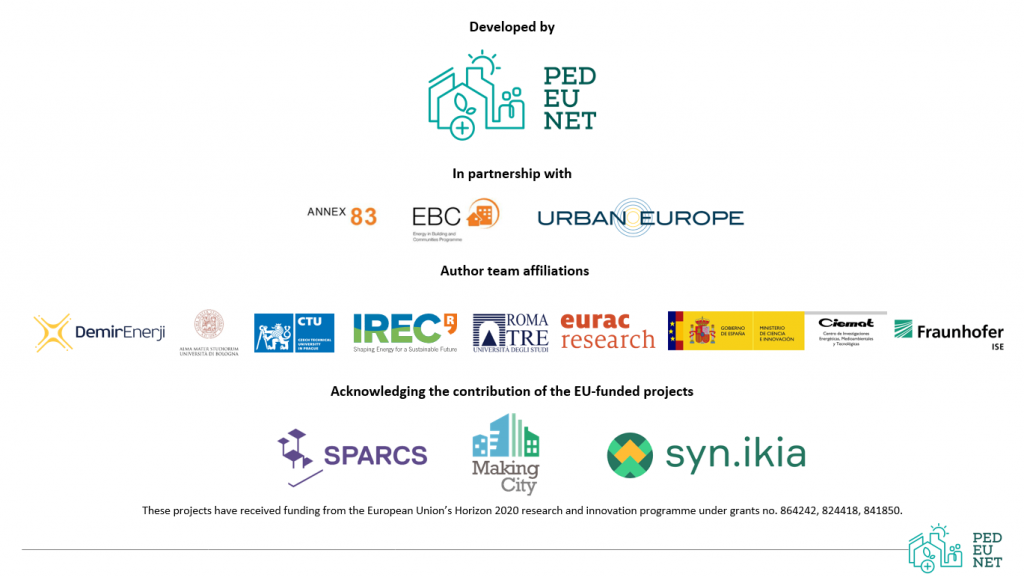| D1P001: Name of the project | |
| D1P001: Name of the project | HeatCOOP |
| D1P002: Project assigned code | |
| D1P002: Project assigned code | F-DUT-2022-0156 |
| D1P003: Start date | |
| D1P003: Start date | 10/23 |
| D1P004: End date | |
| D1P004: End date | 09/26 |
| D1P005: Ongoing project | |
| D1P005: Ongoing project | Yes |
| D1P006: Funding programme/financing model | |
| FP7/H2020/HEU/DUT | no |
| Interreg | no |
| National funding | yes |
| National funding | DUT Partnership |
| Public-Private Partnership - please specify | no |
| Other | no |
| D1P007: Estimated project costs (Mill. €) | |
| D1P007: Estimated project costs (Mill. €) | 0.77 |
| D1P008: Description of project objectives/concepts | |
| D1P008: Description of project objectives/concepts | The project aims to research and develop a prototype of an innovative organisation model for decarbonisation of heat supply in urban neighbourhoods based on heating cooperatives (HeatCOOP). The project addresses the organisational, financial, and legal challenges that building owners face who want to decarbonize their neighbourhood. An organizational prototype is developed based on the cooperative model, which has proven to be successful for more than 150 years in Europe. In this case, the innovative aspect includes bringing together building owners and residents of an urban district to form a heating cooperative (“heat transition community”). In contrast to current energy communities that focus on power, the high initial investment costs and co-ownership of the heating infrastructure pose a major challenge. To tackle these challenges organisational and legal models as well as business and financial model are developed. HeatCoops provide a solution to the challenges many urban residents are facing right now: Climate change due to excessive CO2 emissions and fossil fuel dependency on autocratic governments. By joining a HeatCoop, residents collectively reduce CO2 emissions and end dependence on fossil fuels while saving on energy costs. The concept of collaboration within the organisational, legal, and financial frame of a heating cooperative becomes a key factor for participation in transformative processes. The concepts and models that we develop during the HeatCoop project are tested in three Living Labs in all participating countries: Austria, Czech Republic, and Slovenia. Individual cooperatives for heating infrastructure will be developed together with citizens of each Living Lab - based on templates. As we see a demand and a high market potential, we want to build on our findings and experiences, refine and optimize the prototype and ultimately promote this concept on a national and European level. |
| D1P009: Description of project upscaling strategies/potential | |
| D1P009: Description of project upscaling strategies/potential | |
| D1P010: Number of PED case studies in the project | |
| D1P010: Number of PED case studies in the project | 3 |
| D1P011: Case Study | |
| D1P011: Case Study | |
| D1P012: Description of project expected impact | |
| D1P012: Description of project expected impact | |
| D1P013: Standardization efforts | |
| D1P013: Standardization efforts | |
| D1P014: Sources | |
| D1P014: Sources | |
| D1P015: Can you specify a suitable contact person regarding the load-management approach within your PED project? | |
| Name | Gernot Tscherteu |
| gt@realitylab.at | |
| D1P016: Would you be willing to share data from your PED project for research purposes? | |
| D1P016: Would you be willing to share data from your PED project for research purposes? | Yes |

Authors (framework concept)
Beril Alpagut (Demir Energy); Giulia Turci (University of Bologna); Michal Kuzmic (Czech Technical University in Prague); Paolo Civiero (Università Roma Tre); Serena Pagliulia (University of Bologna); Oscar Seco (CIEMAT); Silvia Soutullo (CIEMAT); Daniele Vettorato (EURAC Research, IEA Annex 83); Bailador Ferreras M. Almudena (CIEMAT); Vicky Albert-Seifried (FHG ISE)
Contributors (to the content)
Laura Aelenei (LNEG), Nienke Maas (TNO), Savis Gohari (OsloMet), Andras Reith (ABUD), Ghazal Etminan (AIT), Maria-Beatrice Andreucci (Universita Sapienza), Francesco Reda (VTT, IEA Annex 83), Mari Hukkalainen (VTT), Judith-Borsboom (Locality), Gilda Massa (ENEA), Jelena Ziemele (University of Latvia), Nikola Pokorny (CVUT), Sergio Diaz de Garayo Balsategui (CENER, IEA Annex 83), Matthias Haase (ZHAW, IEA Annex 83), Christoph Gollner (FFG, JPI UE), Silvia Bossi (ENEA, JPI UE), Christian Winzer (Zurich University of Applied Science), George Martinopoulos (Centre for Research and Technology Hellas), Maria Nuria Sánchez (CIEMAT), Angelina Tomova (Energy Agency of Plovdiv), Oya Tabanoglu (Demir Enerji), Jelena Brajković (University of Belgrade), Juveria Shah (Dalarna University), Michela Pirro (ENEA), Francesca Sabatini (University of Bologna)
Implemented by
Boutik.pt: Filipe Martins, Jamal Khan
Marek Suchánek (Czech Technical University in Prague)